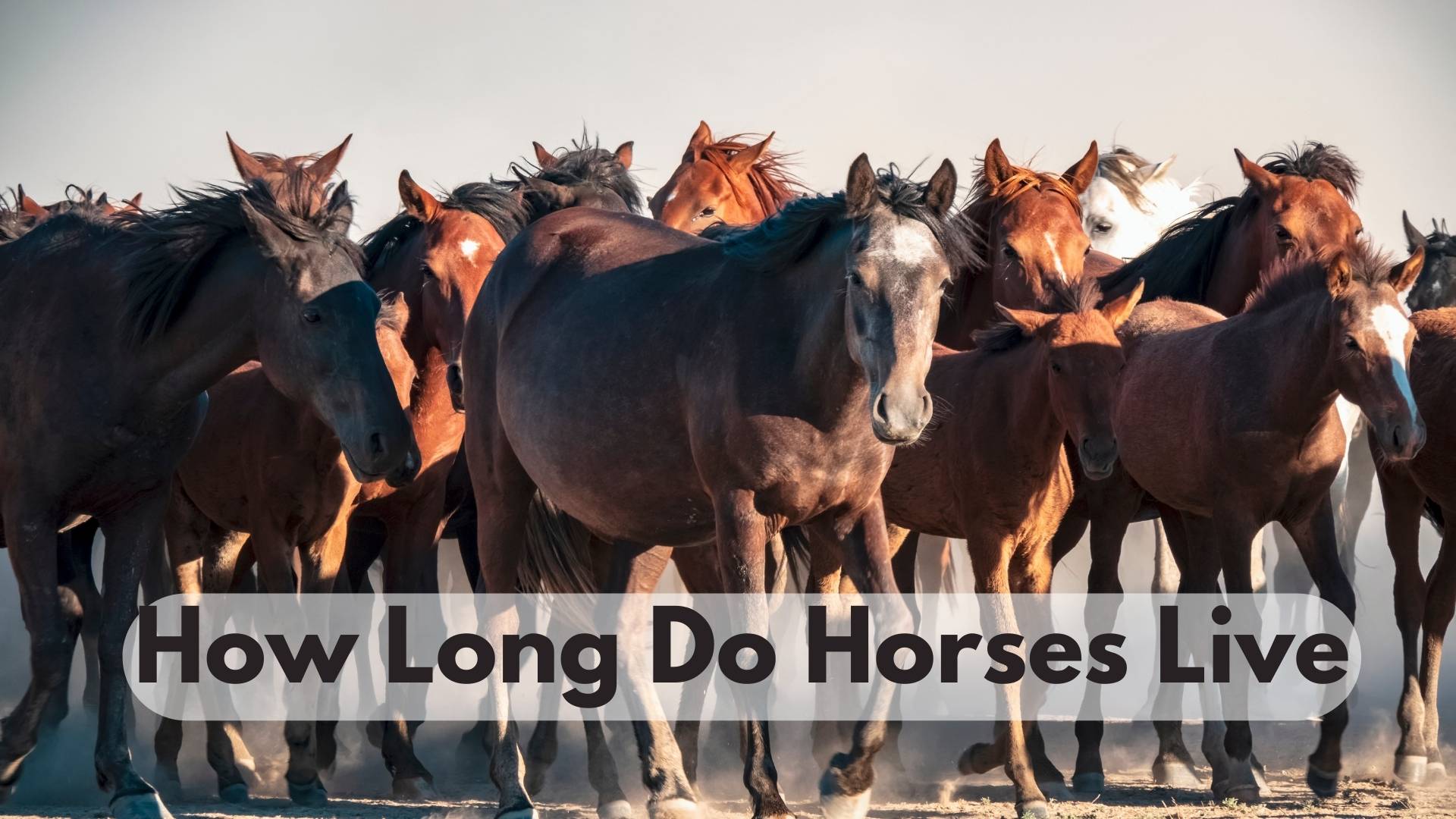Horses have been companions to humans for centuries, serving roles ranging from workhorses in agriculture to prized athletes in competitive sports. Understanding the lifespan of these magnificent creatures is crucial for their care and management. Horse owners and enthusiasts often ponder the question: “How long do horses live?” This article delves into the factors that influence a horse’s lifespan, typical life expectancy ranges, and tips for ensuring your horse lives a long, healthy life.
Typical Lifespan of Horses
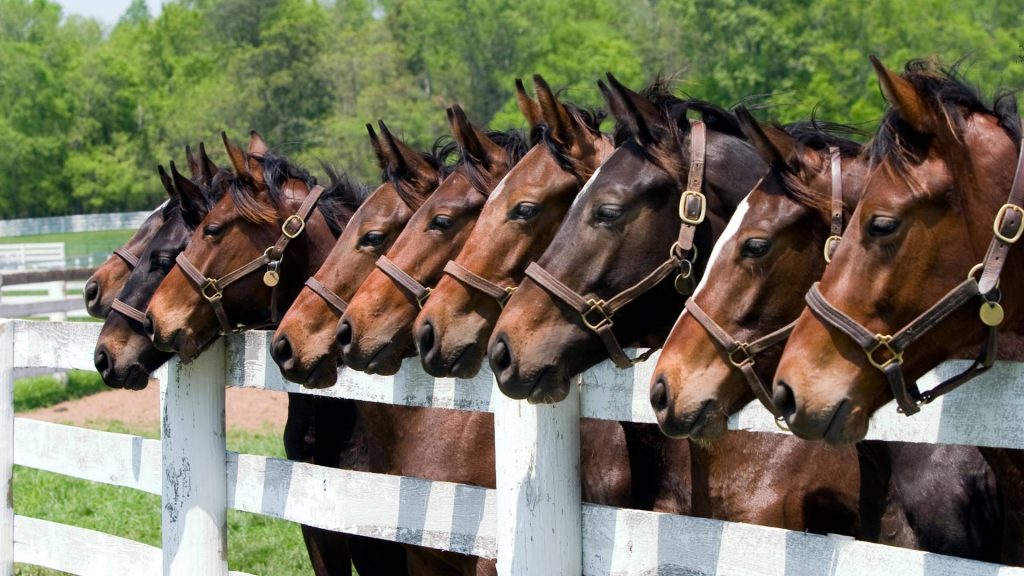
The average lifespan of a horse generally ranges between 25 to 30 years, although some horses can live well into their 30s and even 40s with proper care. This lifespan is comparable to other large domesticated animals, such as cows and sheep, but is shorter than that of many smaller animals, like dogs and cats. The longevity of horses has been relatively consistent throughout history, although advances in veterinary medicine, nutrition, and general care have contributed to increased lifespans in recent decades.
Average Lifespan
Horses typically live between 25 to 30 years, with some reaching up to 35 or 40 years old. This wide range depends on several factors, including breed, genetics, and care. Ponies, a type of small horse, often live longer than larger horse breeds, sometimes reaching 40 years or more.
Comparison with Other Animals
When comparing horses to other animals, their lifespan falls somewhere in the middle. For instance, dogs have an average lifespan of about 10 to 13 years, while cats often live 12 to 18 years, with some reaching their early 20s. Larger livestock such as cows can live up to 20 years, whereas smaller farm animals like sheep and goats typically live around 10 to 12 years.
Historical Perspective on Horse Longevity
Historically, horses did not live as long as they do today. In earlier centuries, the average lifespan of a horse was significantly shorter due to the lack of advanced veterinary care, poor nutrition, and the demanding work roles horses often had to perform. Today, improvements in equine health care, better understanding of horse nutrition, and less physically demanding roles for many horses have contributed to increased lifespans.
Factors Affecting Horse Lifespan
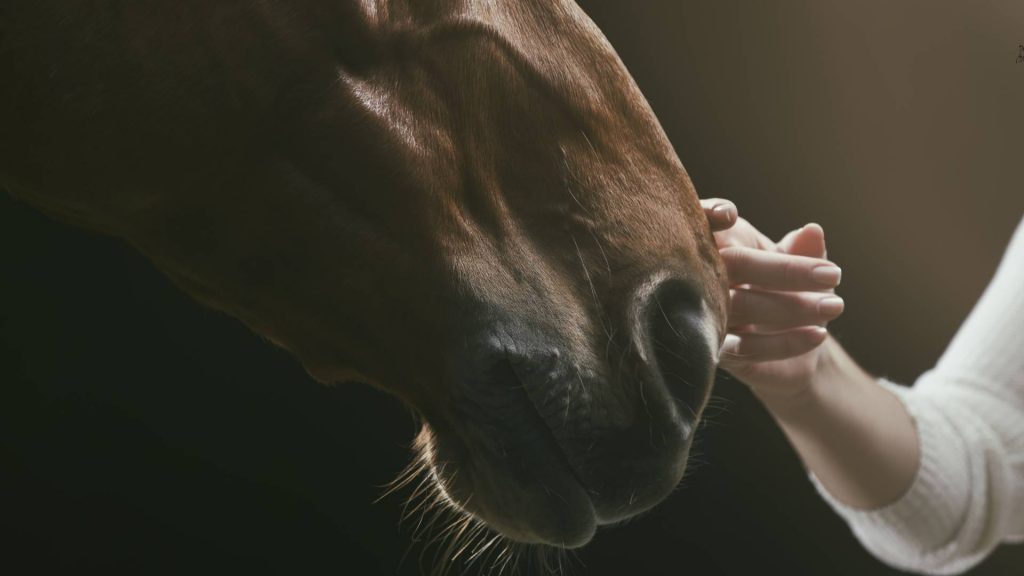
The lifespan of a horse is influenced by a variety of factors, including genetics, breed, health care, diet, living conditions, and the quality of human interaction and care they receive. Understanding these factors can help horse owners provide the best possible care to ensure their horses live long, healthy lives.
Breed Differences
Different horse breeds have varying lifespans. For example, ponies tend to live longer than larger horse breeds. Breeds like the Arabian horse are known for their longevity, often living into their 30s, while larger breeds such as draft horses may have shorter lifespans due to their size and the physical stress on their bodies.
Genetic Factors
Genetics play a significant role in determining a horse’s lifespan. Just like in humans, some horses are naturally predisposed to certain health conditions that can affect their longevity. Selective breeding practices can either enhance or diminish longevity depending on the genetic traits that are prioritized.
Health Care and Veterinary Services
Regular veterinary care is crucial for maintaining a horse’s health and extending its lifespan. Routine check-ups, vaccinations, dental care, and prompt treatment of illnesses and injuries can prevent minor health issues from becoming major problems. Access to high-quality veterinary services can significantly increase a horse’s life expectancy.
Nutrition and Diet
Proper nutrition is essential for a horse’s health and longevity. Horses require a balanced diet that includes adequate forage (like hay or pasture), grains, vitamins, and minerals. Poor nutrition can lead to a variety of health issues, including colic, laminitis, and weakened immune systems, which can shorten a horse’s lifespan.
Living Conditions and Management
The environment in which a horse lives plays a vital role in its overall health and lifespan. Horses need a clean, safe, and spacious living environment that protects them from extreme weather conditions and potential hazards. Proper shelter, clean water, and regular exercise are key components of good horse management.
Exercise and Physical Activity
Regular exercise is important for maintaining a horse’s physical and mental health. Horses that receive consistent exercise are less likely to develop obesity, joint problems, and other health issues. Exercise also provides mental stimulation, which is important for a horse’s well-being.
Human Interaction and Care Quality
The quality of care and the relationship between a horse and its owner can impact its lifespan. Horses that are well-cared-for, with attention to their physical and emotional needs, tend to live longer. Stress, neglect, and abuse can significantly reduce a horse’s lifespan.
Also, Read More: What is The Rarest Animal in The World?
Lifespan by Horse Type
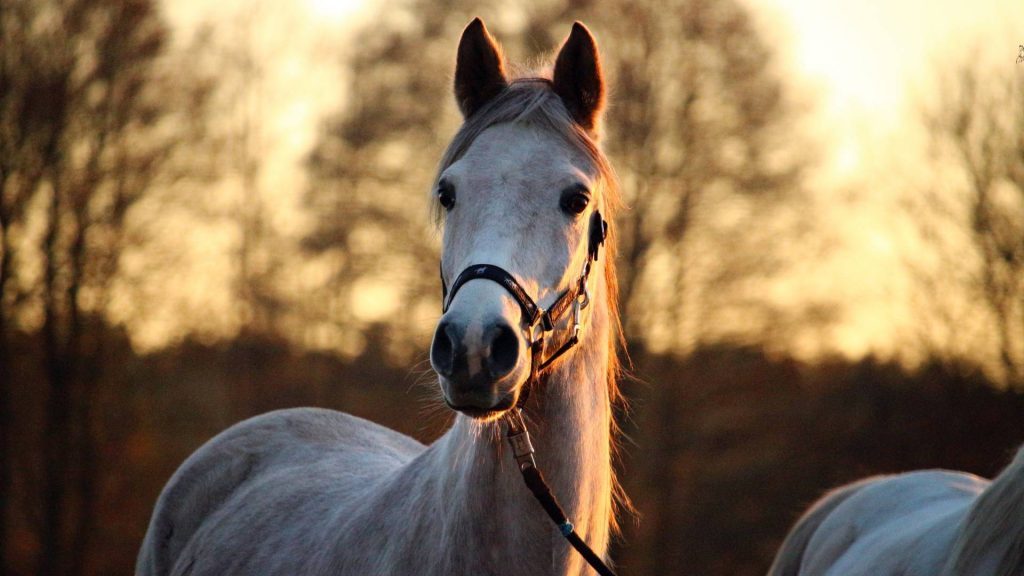
Horses come in a variety of breeds and types, each with its own unique characteristics and typical lifespan. Understanding these differences can help horse owners and enthusiasts make informed decisions about care and expectations for their horses’ longevity.
Differences Among Various Breeds
- Arabian Horses: Known for their endurance and strong genetic lineage, Arabian horses often have longer lifespans, frequently living into their 30s. Their resilience and lower incidence of certain health issues contribute to their longevity.
- Thoroughbreds: Bred primarily for speed and racing, Thoroughbreds generally have shorter lifespans, averaging around 25 to 30 years. The physical demands of racing and breeding practices aimed at performance rather than longevity can impact their lifespan.
- Quarter Horses: Popular for their versatility and calm demeanor, Quarter Horses usually have a lifespan ranging from 25 to 35 years. They tend to be sturdy and less prone to some of the health issues that affect other breeds.
- Draft Horses: These large, powerful horses, such as Clydesdales and Percherons, often have shorter lifespans due to their size and the strain it places on their bodies. Their average lifespan is typically around 20 to 25 years.
Differences Between Working Horses and Leisure Horses
- Working Horses: Horses used for demanding physical tasks, such as farming, logging, or heavy labor, often have shorter lifespans due to the intense physical strain and potential for injury. Proper care and management can mitigate some of these effects, but their lifespan is generally lower than that of leisure horses.
- Leisure Horses: Horses kept primarily for riding, companionship, or light recreational use tend to have longer lifespans. These horses often receive more consistent care, less physical stress, and better living conditions, contributing to a lifespan that can extend into their 30s or beyond.
Lifespan of Wild Horses vs. Domesticated Horses
| Aspect | Wild Horses | Domesticated Horses |
| Average Lifespan | 15 to 20 years | 25 to 30 years or more |
| Environmental Challenges | Natural predators, harsh weather, limited access to food and water | Protected from predators, stable living conditions, regular access to food and water |
| Health Care | No access to veterinary care | Regular veterinary care, vaccinations, and medical treatment |
| Nutrition | Varied, dependent on available forage | Balanced diet with adequate forage, grains, vitamins, and minerals |
| Physical Activity | High level of natural exercise | Regular but often managed exercise |
| Stress Factors | High stress due to survival needs | Lower stress due to stable environment and care |
| Common Causes of Mortality | Predation, starvation, disease | Diseases, old age, injury, but mitigated by medical care |
| Genetic Factors | Natural selection for survival traits | Selective breeding can impact health and longevity |
| Human Interaction | None | Regular interaction and care, which can improve well-being and lifespan |
Common Health Issues Impacting Longevity
Horses, like all living creatures, are susceptible to various health issues that can significantly impact their lifespan. Early detection and proper management of these health problems are crucial for ensuring a long and healthy life for horses. Below are some common health issues that affect horses and strategies for preventive care.
- Colic
- Description: Colic is a general term for gastrointestinal pain in horses and can range from mild discomfort to severe, life-threatening conditions. Causes include gas buildup, impaction, or twisted intestines.
- Impact: It is one of the leading causes of death in horses. Prompt veterinary intervention is often required to treat severe cases.
- Laminitis
- Description: Laminitis is the inflammation of the laminae tissues in the hoof, leading to severe pain and potentially crippling lameness.
- Impact: Chronic laminitis can significantly decrease a horse’s quality of life and longevity, sometimes necessitating euthanasia if the pain becomes unmanageable.
- Arthritis
- Description: Arthritis is the inflammation of joints, leading to pain and stiffness. It is common in older horses and those that have had a physically demanding life.
- Impact: While not usually fatal, arthritis can reduce a horse’s mobility and quality of life, requiring management with pain relief and anti-inflammatory medications.
- Respiratory Diseases
- Description: Conditions like equine asthma (formerly known as heaves) and recurrent airway obstruction can affect horses, particularly those exposed to dusty environments or with poor ventilation.
- Impact: Chronic respiratory issues can reduce a horse’s performance ability and overall lifespan if not properly managed.
- Equine Cushing’s Disease (PPID)
- Description: Pituitary Pars Intermedia Dysfunction (PPID) is a hormonal disorder affecting older horses, characterized by abnormal hair growth, weight loss, and increased risk of laminitis.
- Impact: While manageable with medication, PPID can significantly affect a horse’s health and lifespan if left untreated.
Importance of Early Detection and Treatment
Early detection of health issues is crucial for effective treatment and management. Regular veterinary check-ups can help identify problems before they become severe. Owners should be vigilant for signs of illness, such as changes in behavior, eating habits, or physical condition, and seek veterinary advice promptly.
Preventive Care Strategies
- Regular Veterinary Check-Ups
- Ensuring horses receive routine health examinations can help catch potential problems early. Vaccinations, dental care, and deworming are essential components of preventive health care.
- Proper Nutrition
- Providing a balanced diet tailored to a horse’s age, breed, and activity level helps maintain optimal health. High-quality forage, appropriate grains, and supplements as needed contribute to overall well-being.
- Clean and Safe Living Conditions
- Maintaining clean stables and pastures reduces the risk of infections and injuries. Safe environments minimize exposure to hazards that could cause accidents or health issues.
- Regular Exercise and Mental Stimulation
- Keeping horses physically active helps prevent obesity and related health problems. Mental stimulation through interaction and environmental enrichment promotes overall well-being.
Enhancing Horse Longevity
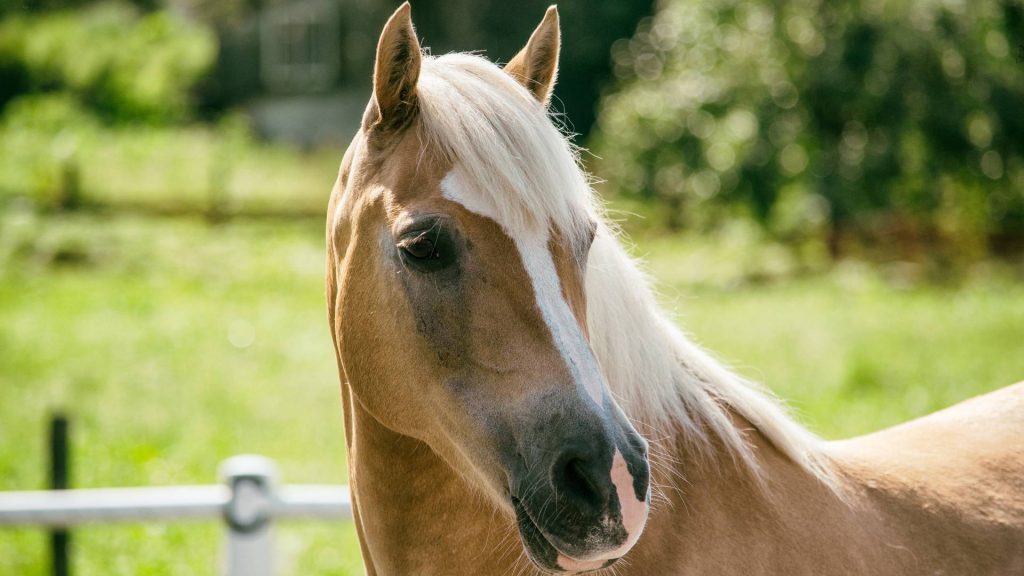
Ensuring a horse lives a long, healthy life requires proactive measures aimed at promoting overall well-being. By implementing best practices in horse care and management, owners can optimize their horses’ longevity and quality of life. Below are key strategies for enhancing horse longevity:
Best Practices for Horse Care
- Regular Veterinary Check-Ups:
- Schedule routine health examinations with a veterinarian to monitor your horse’s health status and address any emerging issues promptly. Vaccinations, dental care, and deworming should be part of the preventive health care plan.
- Optimal Feeding Practices:
- Provide a balanced diet tailored to your horse’s individual needs, considering factors such as age, breed, activity level, and health status. Ensure access to clean water, high-quality forage, appropriate grains, and necessary supplements.
- Proper Shelter and Living Conditions:
- Maintain clean and safe stables or pastures to minimize the risk of infections, injuries, and exposure to environmental hazards. Adequate shelter protects horses from extreme weather conditions and provides a comfortable resting environment.
- Regular Exercise and Physical Activity:
- Incorporate regular exercise into your horse’s routine to promote cardiovascular health, muscle tone, and mental well-being. Tailor the exercise regimen to your horse’s age, fitness level, and intended use, whether for leisure riding, competition, or work.
- Mental Stimulation and Enrichment:
- Provide opportunities for mental stimulation and enrichment to prevent boredom and behavioral issues. Allow horses ample turnout time in pastures, offer toys or enrichment devices, and engage in activities that encourage natural behaviors.
Importance of Veterinary Care
Regular veterinary care is paramount for maintaining a horse’s health and detecting potential issues early. Veterinarians can provide valuable guidance on preventive care measures, nutrition, parasite control, and management practices tailored to your horse’s specific needs. Timely intervention and treatment of health problems can prevent complications and improve outcomes.
Optimal Nutrition and Diet Management
A well-balanced diet is essential for meeting a horse’s nutritional requirements and supporting overall health. Work with a qualified equine nutritionist or veterinarian to develop a feeding program that meets your horse’s individual needs and accounts for factors such as age, breed, workload, and health conditions. Monitor your horse’s body condition regularly and adjust feeding practices as needed to maintain optimal weight and health.
Proper Management Practices
Effective horse management encompasses various aspects, including housing, turnout, socialization, and handling techniques. Create a safe and enriching environment that promotes physical and emotional well-being. Minimize stressors and provide consistent, compassionate care to foster a strong bond between you and your horse. Implement sound biosecurity measures to prevent the spread of contagious diseases and maintain a healthy herd.
Case Studies and Examples
In this section, we explore real-life instances of horses that have surpassed the average lifespan, highlighting the factors contributing to their longevity and the lessons learned from their care.
Notable Long-Lived Horses
- Old Billy:
- Guinness World Record holder for the oldest horse, lived to be 62 years old.
- Sham:
- Renowned Thoroughbred racehorse, lived to 30, credited to attentive care post-racing.
Lessons Learned
- Quality of Care:
- Exceptional care, including regular vet check-ups and proper nutrition, promotes longevity.
- Stress Reduction:
- Minimizing stressors and providing a calm environment enhances a horse’s lifespan.
Personal Anecdotes
- Molly’s Story:
- Balanced care and attention led Molly, a Quarter Horse, to surpass her breed’s average lifespan.
- Charlie’s Journey:
- Through rehabilitation and patience, Charlie, a rescue horse, overcame challenges to live a fulfilling life into his late 20s.
By studying these cases, horse owners can adapt best practices to ensure their equine companions enjoy prolonged, healthy lives.
Conclusion
Understanding the factors influencing horse longevity is vital for ensuring their well-being. By prioritizing proper care, nutrition, and veterinary attention, horse owners can enhance their horses’ quality of life and extend their lifespan. It’s crucial to acknowledge the unique needs of each horse and provide a nurturing environment that fosters health and happiness. Ultimately, by investing in proactive management practices, we can optimize the longevity and companionship horses offer in our lives.

